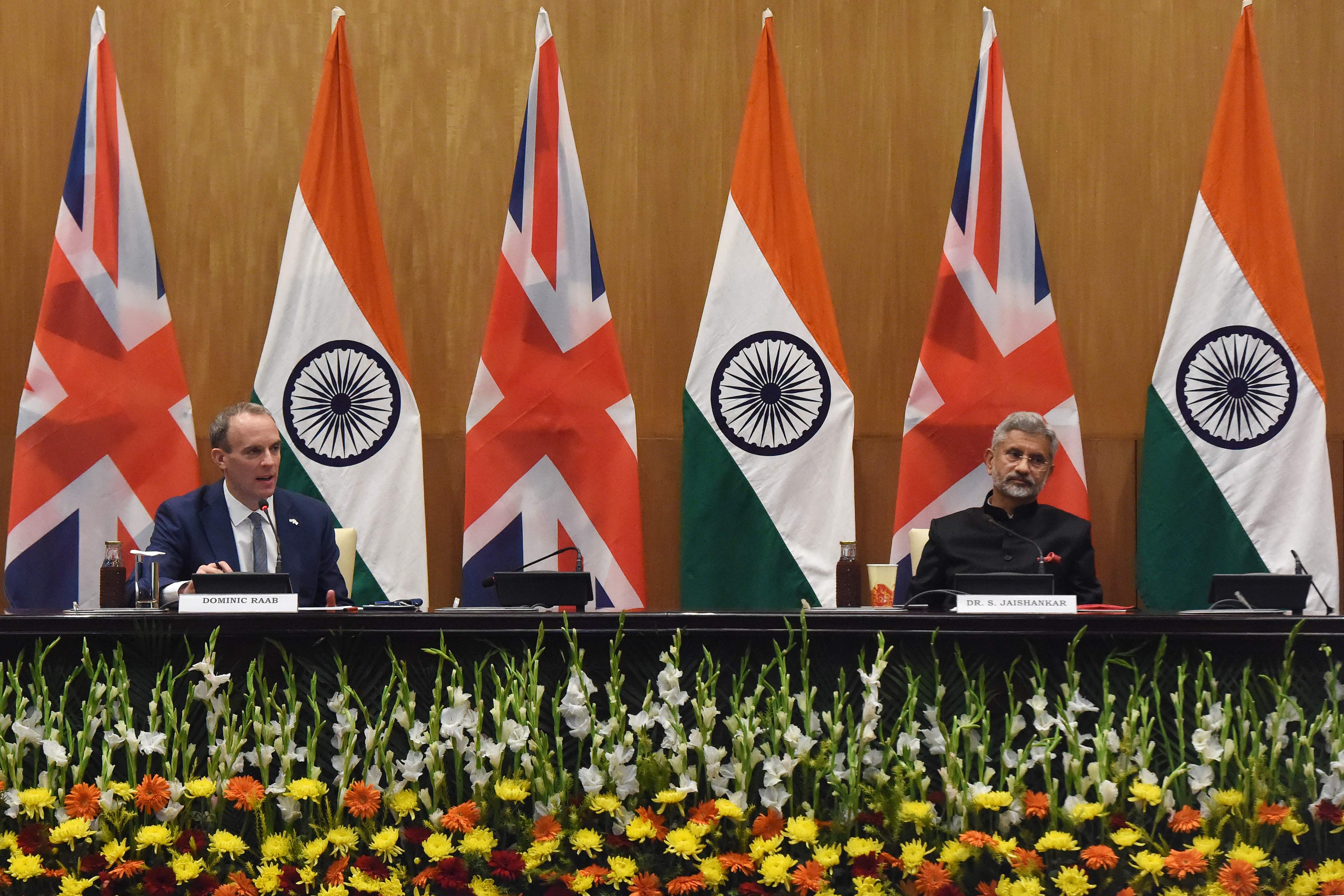Boris Johnson’s India trip is exactly what ‘global Britain’ should be doing – what could possibly go wrong?
After Brexit, slow growing UK needs to hitch up to some powerhouses of the future. India is therefore a prime target


Your support helps us to tell the story
From reproductive rights to climate change to Big Tech, The Independent is on the ground when the story is developing. Whether it's investigating the financials of Elon Musk's pro-Trump PAC or producing our latest documentary, 'The A Word', which shines a light on the American women fighting for reproductive rights, we know how important it is to parse out the facts from the messaging.
At such a critical moment in US history, we need reporters on the ground. Your donation allows us to keep sending journalists to speak to both sides of the story.
The Independent is trusted by Americans across the entire political spectrum. And unlike many other quality news outlets, we choose not to lock Americans out of our reporting and analysis with paywalls. We believe quality journalism should be available to everyone, paid for by those who can afford it.
Your support makes all the difference.We all know Boris Johnson is a charlatan masquerading as a clown (so far as I can make sense of this strange, driven but directionless man). We also know he has been and will continue to be a disastrous prime minister, and the man most responsible for Brexit.
However, he is right to take himself off to India in the New Year. It is precisely the sort of thing that “global Britain” should be doing post-Brexit. That is to say this medium-sized regional power increasingly estranged from its closest neighbours has to look for new, powerful dynamic friends in the world. Slow growing Britain needs to hitch up to some powerhouses of the future. India is a prime target and entirely appropriate destination for the first properly post-Brexit British trade and investment mission.
Adjusting for the distortions of exchange rates, India is already the third biggest economy in the world, behind China and America, with a GDP comfortably twice as large as Britain’s. Of the old Brics, the fast growing emerging economies of the new millennium, it is indeed the only realistic candidate for cooperation.
B, if you recall, was for Brazil. That country is, shall we say, volatile and in the hands of a man who makes Donald Trump seem normal. R is for Russia, but also for revanchism and is hardly a friendly power. C is for China, and the Communist Party, and the crushing of dissent and human rights in Hong Kong and of the Uighur people. Other emerging states such as Indonesia and Turkey also have their challenges. India, though, is still a functioning democracy with a mostly free media and the rule of law, though prime minister Modi has been eroding all that. There are also the historical and cultural links, some happier than others.
An economic partnership is there for the taking. It won’t make up for the loss of existing trade with and investment in Europe, though. In fact the UK was much more use to India inside the EU than outside it, but there we are. As with the Europeans and the Americans, the British, as the smaller party, will have to be grateful for whatever they can get. That is the general rule in trade and economics; heft matters much more than sentiment.
What could possibly go wrong?
Well, Theresa May made a similar trip in the exhilarating early days of her premiership, but the new Indo-British alliance foundered on - you guessed - immigration. It was personal too. As Home Secretary, May had resisted pressure to ease visa applications from India, particularly from students and ex-students seeking work in, say, IT - just the sort of people Britain needs. Her attitude hadn’t changed at Number 10, and the Indians resented it: No deal.
At least Johnson doesn’t carry that baggage with him. The India deal will be an early opportunity to prove the unlikely liberal credentials of Brexit, by removing the preference for all (usually white) students and workers from the EU over most (usually brown) candidates from India. Of course many Leave voters backed Brexit to reduce all immigration from anywhere, so it will be a huge test for Johnson and his points-based system to permit more Indian citizens to have “free movement” into Britain. Anyway, it’s the price (or more accurately another benefit) of the British-Indian partnership.
Of course the other thing that can go wrong is that Johnson won’t be able to resist invoking dreams of the Raj and regard his reception in Delhi as some latter-day Durbar. When he visited Myanmar as foreign secretary in 2017, Johnson could not resist publicly reciting “The Road to Mandalay”, an imperial-era poem by Rudyard Kipling that would nowadays be termed “problematic”: “The temple bells they say, come back you British soldier”. It was all the British ambassador could do to persuade Johnson that he was on camera and that his hosts might find the derogatory descriptions of Burmese culture offensive.
Nonetheless, Johnson compared a Buddhist religious icon to a “very big guinea pig” and the damage to relations with the former colony was complete. The foreign secretary, Dominic Raab, is out in India now preparing the ground, and it wouldn’t be happening if Johnson was just going to return empty handed. We should be optimistic, this time, about a good start for an eventual trade deal. So long as Johnson doesn’t try and crack any gags we’ll be OK. Won’t we?

Join our commenting forum
Join thought-provoking conversations, follow other Independent readers and see their replies
0Comments